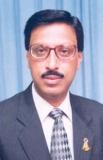Letter from the Editor-in-Chief
Dear friends,
June 2012
 Mr. P. A. Sangma the former Speaker of the Lok Sabha, a stalwart from the north east region of India with wide national acceptability is in the race to reach India’s highest position - the President of India. Incidentally before him, Professor G. G. Swell also from Meghalaya had contested for this coveted post and lost.
Mr. P. A. Sangma the former Speaker of the Lok Sabha, a stalwart from the north east region of India with wide national acceptability is in the race to reach India’s highest position - the President of India. Incidentally before him, Professor G. G. Swell also from Meghalaya had contested for this coveted post and lost.
Politics is the game of possibilities. The President is elected by the Members of Parliament both from Lok Sabha and Rajya Sabha and members of the state Legislative Assemblies. Incidentally the ruling UPA Government is not having the majority mark and the main opposition i.e. NDA is not revealing its stand. Interestingly, support for Mr. P. A. Sangma’s candidature has come from the extreme south of India in the form of Tamil Nadu Chief Minister Jayalalitha and from the extreme east in the form of the Odisha Chief Minister Mr. Biju Patnaik. Notably, Mr. P. A. Sangma’s own party has not yet confirmed their support for his candidature.
In the absence of UPA support, Mr. Sangma has no choice but to mobilize the support of the BJP - a fact that Mr. Sangma is very aware of. The proximity between Jayalalitha and Narendra Modi might result in an equation favouraable to the candidature of Mr. P A Sangma.
The move made by the AIDMK of Tamil Nadu and Janata Dal United of Odisha is an indication that they are possibly trying to form a third front and if this gets support from the NDA, Mr. P. A. Sangma has a good chance to make it to the coveted seat.
Normally if the President of the country attains power without the support of the ruling Government, he is more likely to be judicious and fair in his approach to safeguard the Constitution of the country. History can not be forgotten and given the relationship between Mr. P. A. Sangma and Congress President Sonia Gandhi it is likely that if elected, Mr. P. A. Sangma will not be a ‘Puppet President’. If Mr. P. A. Sangma becomes the President of India, this will augur well for democracy in the country.
Another very significant event which occurred in May was the visit of Prime Minister Dr. Manmohan Singh to Myanmar. The visit will help in improving the relationship between the two countries. What India needs is to act as an elder brother and develop a good relationship with its neighbour. As they say, geography and neighbours can never be changed.
The most interesting outcome of this meeting is that various insurgent groups of the north east in general and Manipur in particular which are operating from Myanmar will now face a tough time. After similar efforts by Bhutan and Bangladesh, a cleaning process from Myanmar may soon begin. Such a move can only help the north east.
